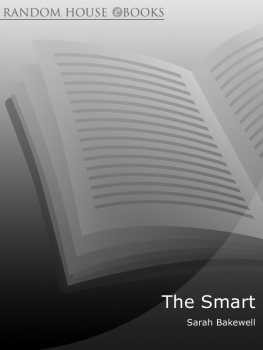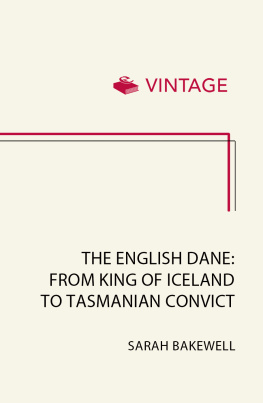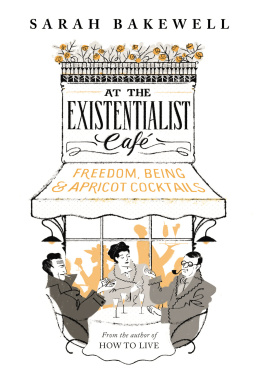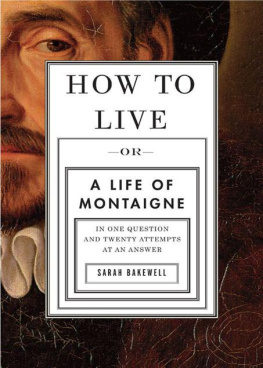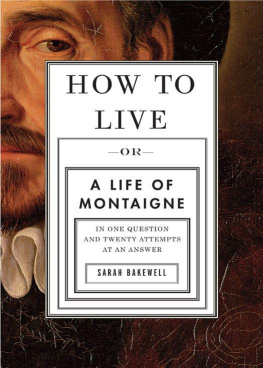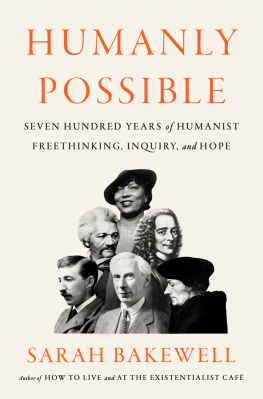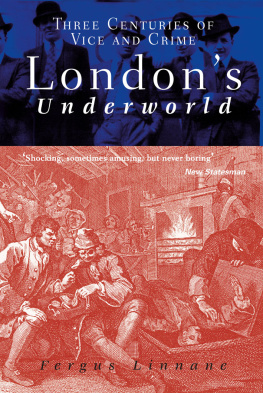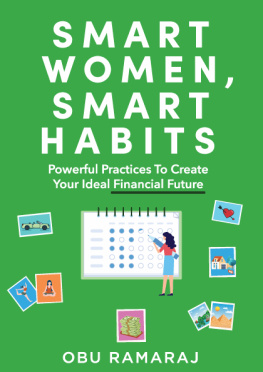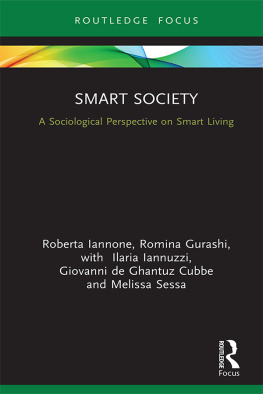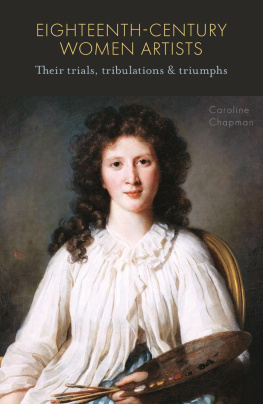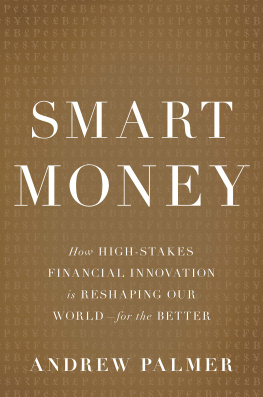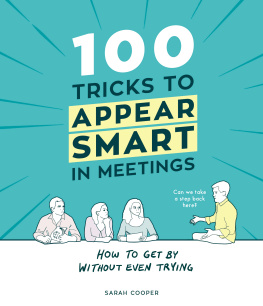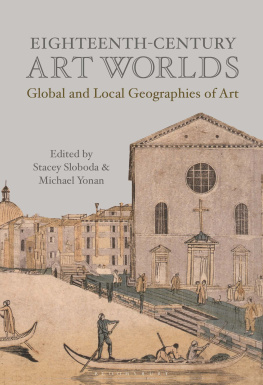
About the Book
The Smart is a true drama of eighteenth-century life with a mercurial, mysterious heroine. Caroline is a young Irishwoman who runs off to marry a soldier, comes to London and slides into a glamorous life as a high-class prostitute, a great risk-taker, possessing a mesmerising appeal. In the early 1770s, she becomes involved with the intriguing Perreau twins, identical in looks but opposite in character, one a sober merchant, the other a raffish gambler. They begin forging bonds, living in increasing luxury until everything collapses like a house of cards and forgery is a capital offence.
A brilliantly researched and marvellously evocative history, The Smart is full of the life of London streets and shot through with enduring themes sex, money, death and fame. It bridges the gap between aristocracy and underworld as eighteenth-century society is drawn into the most scandalous financial sting of the age.
Sarah Bakewell
T HE S MART
The Story of
Margaret Caroline Rudd
and the Unfortunate
Perreau Brothers

This eBook is copyright material and must not be copied, reproduced, transferred, distributed, leased, licensed or publicly performed or used in any way except as specifically permitted in writing by the publishers, as allowed under the terms and conditions under which it was purchased or as strictly permitted by applicable copyright law. Any unauthorised distribution or use of this text may be a direct infringement of the authors and publishers rights and those responsible may be liable in law accordingly.
Version 1.0
Epub ISBN 9781446483671
www.randomhouse.co.uk
Published by Vintage 2002
2 4 6 8 10 9 7 5 3 1
Copyright Sarah Bakewell 2001
Sarah Bakewell has asserted her right under the Copyright, Designs and Patents Act, 1988 to be identified as the author of this work
This book is sold subject to the condition that it shall not by way of trade or otherwise, be lent, resold, hired out, or otherwise circulated without the publishers prior consent in any form of binding or cover other than that in which it is published and without a similar condition including this condition being imposed on the subsequent purchaser
First published in Great Britain in 2001 by Chatto & Windus
Vintage
Random House, 20 Vauxhall Bridge Road,
London SW1V 2SA
Random House Australia (Pty) Limited
20 Alfred Street, Milsons Point, Sydney
New South Wales 2061, Australia
Random House New Zealand Limited
18 Poland Road, Glenfield, Auckland 10,
New Zealand
Random House (Pty) Limited
Endulini, 5A Jubilee Road, Parktown 2193,
South Africa
The Random House Group Limited Reg. No. 954009
www.randomhouse.co.uk
A CIP catalogue record for this book is available from the British Library
ISBN 0 09 928663 7
Contents
In forgery and perjury owned such art, She palmed the Gold, while others paid the smart.
William Combe, The Diabo-lady, 1777
About the Author
Sarah Bakewell is a curator at the Wellcome Library, London. She has written for publications ranging from journals of medical history to Fortean Times.
Illustrations
Introduction
THE STRANGE STORY of Margaret Caroline Rudd and the Perreau brothers fell into my path entirely by accident. My job then was (and still is) cataloguing early printed books in the medical history collection of the Wellcome Library in London. Cataloguing is a peculiar business, half scholarly and half menial. It requires many ant-sized pieces of detective work: to decide which variant printing you have, or to trace a previous owner from an unreadable signature, or to discover whether a picture really belongs to the book or has just been stuck there because it looks nice. Some days this work is as pleasantly soothing as basket-weaving; other days the joys of all the pedantic pottering wear thin. But then there are also days when you stumble across a genuinely fascinating bit of history, which suddenly makes everything worthwhile. This time the story I found was to give me much more than a minutes satisfaction, though. It was to start me off on a quest.
Mrs Rudd and I met between the pages of a slightly battered volume of eighteenth-century pamphlets, of which only the first item was relevant to a medical library. It was a satire on the insanity of King George III, poking fun at his confusion and telling a lot of cheeky anecdotes about his conduct particularly towards young ladies. Not surprisingly, it was anonymous, and so was the pamphlet which followed it: a compilation of Maxims in Prose and Verse published from inside Newgate Prison by one of its inmates. It included a handwritten note from the Newgate sheriff, declaring that the author had behaved himself since he has been prisoner here very properly, and is certainly an object of Charity.
The third item after this contrasting pair of oddities the badly behaved monarch and the wellbehaved convict was a short work called Mrs Stewarts Case, Written by Herself, and Respectfully Submitted to the Enlightened Part of the Publick. The calm title belied the contents, which were twenty-seven pages of sizzling vitriol distilled from long-nursed grievances and poured over one Lord Rawdon, a wealthy relative who had abandoned the writer in her hour of need. Mrs Stewart savaged him mercilessly and invited him to make amends by handing over a large sum of money as soon as possible.
It didnt take long to find out who this angry lady was. The British Library catalogue listed a Stewart, Margaret Caroline (pseud.), author of Mrs Stewarts Case, and revealed that her real name was Margaret Caroline Rudd. When I looked up Mrs Rudd in the Library of Congresss name file, a roll-call of other pseudonyms came tumbling down the screen: Mrs Gore, Mrs Perreau, Margaret Youngson, Mrs Potter, Mrs Porter, Caroline de Grosberg, and more. The source given for all this was a 1776 book, itself anonymous: the Authentic Anecdotes of the Life and Transactions of Mrs Margaret Rudd.
I was hooked. What was this woman up to with all these multiple identities and transactions? And what exactly were the agonies and injustices she bemoaned so bitterly in Mrs Stewarts Case? The next time I passed by the British Library I ordered up their copy of the Authentic Anecdotes. It was a far from reliable book, being obviously written by someone who knew her personally and hated her guts, but the tale it told was extraordinary, and it revealed a very interesting woman indeed.
There was plenty more to read on Mrs Rudd, including transcripts of the Old Bailey trial which I soon learned lay at the heart of her story, and accounts of the two men whose fate was entangled with hers: Robert and Daniel Perreau. They were just as intriguing as she was. Identical twins with lifestyles and personalities that could hardly be more different, they too had been accused of serious crimes and tried for their lives, and were rarely mentioned without a woeful, chilling adjective: the unfortunate Perreau brothers.
Addicted, I read my way through everything: pamphlets, trials, newspaper reports, published letters, the
Next page
